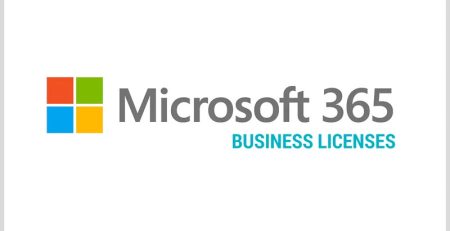Is a Managed Service Provider Right for Your Business?
Owners of small- and medium-sized businesses have a lot on their plate. On top of being tasked with running their business, a detail that could be overlooked is deciding how to handle their company’s IT needs. What makes sense for your company? Do you hire a full IT staff to take care of everything in-house? Do you outsource everything to a managed service provider (MSP)? Do you hire a single IT person who can handle day-to-day tasks but outsource the rest to an MSP that can maintain and monitor your network, offer advisory services, and budget for current and future needs?
There are pros and cons to each, and there are things to consider — such as your company’s goals and strategy toward meeting those goals — when deciding how much work you want to outsource, or if you even need to outsource.
Do You Want Complete Control Over Your IT Management?
You have three choices when it comes to managing your company’s IT needs, and they all come with a different level of control on your part. Some owners want to handle all aspects of IT in their business, some want no responsibility and some fall in the middle. Which option will best help you achieve your company goals?
- In-house: Hire a full IT staff to manage everything in-house
- MSP: Outsource everything to a managed service provider
- Co-managed IT: Hire a few IT people to handle specific tasks but leave the rest to a managed service provider
Option 1: In-house Only. You’ll have complete control over your company’s IT management. Your IT staff will have 100% focus on your business instead of splitting their attention across multiple businesses. You’ll incur all the costs of hiring and training, as well as all the costs of the tools they will need to do their job efficiently.
Option 2: MSP Only. You’ll have indirect control over your company’s IT management. You will discuss your ongoing needs with the MSP you hire, and they will make recommendations based on your needs. But ultimately, the responsibility to implement the solution falls solely on the managed service provider. The MSP will incur the costs of hiring and training as well as the cost of tools
Option 3: Co-managed IT. You’ll have some control, as you can hire people to focus on areas where your company’s needs are more specialized. You then fill in the gaps by outsourcing things like cybersecurity, proactive maintenance and budgeting. You share the overhead costs and you’ll have a deep bench of IT professionals.
How Accessible Do You Want Your IT Staff?
If you hire a full IT staff, you can set their schedules, salary, workload, tasks, etc., and if a problem arises, you’ll have direct authority over the people who respond. It’s comforting for some owners to know they have a person in-house who can be held accountable to fix any issue or set up new hardware/software without worrying about making a phone call or submitting a ticket request to an MSP.
However, if your IT staff consists of one person, that person will need a vacation once in a while or get sick and need time off and even if they’re super human and never miss a day, they probably won’t know everything when it comes to IT. An MSP offers a team full of technicians that specialize in every facet of IT, meaning they can support your IT person and lighten their workload. In this scenario, you still can control what your IT person focuses their time on, but you would relinquish some of that control to a managed service provider.
Whether an MSP is right for you and your business comes down to the size and complexity of your IT needs, your in-house IT capabilities, your budget and your business goals.
Hiring a full IT staff would cover you when someone gets sick or goes on vacation, but depending on the size of your company, it might not be financially viable or smart to hire enough people dedicated to IT; it may end up costing you more money in the long run. Or there’s the possibility your company is too big for an MSP and you’d be better served hiring individuals to cover every need you have. Even in this scenario, it might be more effective to add an MSP to manage the things that don’t require intimate knowledge of your workflow, like checking backups, setting up new employee accounts and laptops, or and aligning your IT to best practices.
You also can decide to have no IT person on staff and ask an MSP to handle everything. You’ll be completely covered from an IT perspective but won’t have anyone in-house. You’ll have to rely on submitting a ticket request or making a phone call when you want to contact a technician.
Do You Mind Paying a Subscription for an MSP?
Some owners don’t like the idea of paying a monthly fee for a managed service provider. It’ll be less than the cost of hiring a full-time employee, but you’ll be paying that MSP whether you use their services or not.
Many MSPs offer a tiered pricing system to help you pay for services and products you want without paying for stuff you don’t need. You will have to decide if the monthly cost justifies the value you get from those products and services.
There also is the idea of investing in hardware and software. With an MSP, there still will be additional costs for things like Microsoft Office or video conferencing software, but you won’t have to worry about setting up and implementing the software yourself. You’ll be able to pick and choose which programs make sense for your business.
If you prefer to handle all IT aspects with a staff, then you’ll incur the cost to own these products on top of paying your staff to implement them.
What Industry are You in and How Big is Your Company?
The type of industry your company serves also can have a strong influence on whether you are a good fit to hire an MSP. Companies with many knowledge workers, or white-collar workers, generally rely more on the things that hiring an MSP will directly impact — law firms, accounting firms, health care facilities and logistics firms are some examples.
Most managed service providers work with many different businesses in a wide range of industries. This well-rounded experience means MSPs have a much broader exposure to tech trends and best practices to solve problems.
However, there are managed service providers that cover only a few industries and have expert-level knowledge, offering a more intimate working relationship you might not get with a more generalized MSP.
Regarding the size of your company, MSPs generally cover small- and medium-sized businesses. The definition of a small- or medium-sized business can vary depending on the industry, but generally, we are talking about businesses with less than 200 employees.
But you might own a small business that has less than 10 employees. In that case, it might not be cost effective to sign a monthly contract for support with managed service provider as your IT needs may be so infrequent that you are better off only getting billed when you need help.
On the other hand, if your IT infrastructure is complex — multiple data centers, branch offices and remote workers, as well as several applications necessary to keep your business running — it would make more sense to hire an MSP that can provide the expertise and resources to effectively manage it.
Whether an MSP is right for you and your business comes down to the size and complexity of your IT needs, your in-house IT capabilities, your budget and your business goals.
IT Services in West Michigan
Are you looking to hire a managed service provider for your company? Contact us here to see how we can help keep your business running smoothly while increasing productivity, security and profitability.











